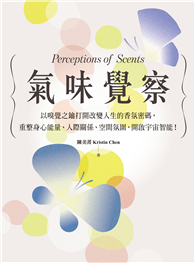The Protestant Church in China is growing very fast. However, the role of the Church in society is still fragile and marginal. The Church needs a strong ethical and structural development. This study analyses the theological, ethical and ecclesiological heritage of the Reformation and it shows how this can build the foundation for the future of the Church in China. Four models serve as orientation: the Reformers Luther and Calvin and the theologians Bonhoeffer and Barth in the 20th century, with their vision of Christian faith and a humane society. The critical analysis of the missionary heritage since the 19th century shows its contribution for the acceptance of the tradition of the Reformation for the growing Church in China.
The author combines this theological and ethical perspective with the inculturation in the strong ethical tradition of the Chinese culture. He proposes the encounter between the spirituality of the Western culture and that of the traditional culture of China through the relationship with Confucianism. The book also offers elements for the dialogue around modern values such as human rights and civil society. In this dialogue, Chinese Protestantism can play more and more an important role.
| FindBook |
有 1 項符合
Church in China: Faith, Ethics, Structure: The Heritage of the Reformation for the Future of the Church in China的圖書 |
 |
Church in China: Faith, Ethics, Structure: The Heritage of the Reformation for the Future of the Church in China 作者:Wang 出版社:Peter Lang Gmbh, Internationaler Verlag Der W 出版日期:2009-05-20 語言:英文 規格:平裝 / 590頁 / 普通級 |
| 圖書館借閱 |
| 國家圖書館 | 全國圖書書目資訊網 | 國立公共資訊圖書館 | 電子書服務平台 | MetaCat 跨館整合查詢 |
| 臺北市立圖書館 | 新北市立圖書館 | 基隆市公共圖書館 | 桃園市立圖書館 | 新竹縣公共圖書館 |
| 苗栗縣立圖書館 | 臺中市立圖書館 | 彰化縣公共圖書館 | 南投縣文化局 | 雲林縣公共圖書館 |
| 嘉義縣圖書館 | 臺南市立圖書館 | 高雄市立圖書館 | 屏東縣公共圖書館 | 宜蘭縣公共圖書館 |
| 花蓮縣文化局 | 臺東縣文化處 |
|
|
圖書介紹 - 資料來源:博客來 評分:
圖書名稱:Church in China: Faith, Ethics, Structure: The Heritage of the Reformation for the Future of the Church in China
內容簡介
作者簡介
The Author: Aiming Wang (1963) is Dean and Vice President of the Nanjing Union Theological Seminary in China and Vice Director of the Committee of Theological Education of the China Christian Council. He was Assistant Professor for Western Literature at the Nanjing Normal University. In 2008, he received his doctoral degree in Systematic Theology/Ethics at the University of Basel, Switzerland and his doctor honoris causa from the University of Neuchâtel, Switzerland.
|











